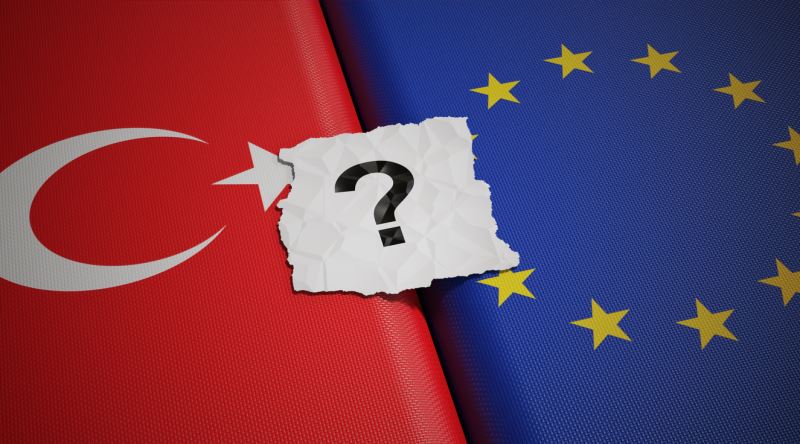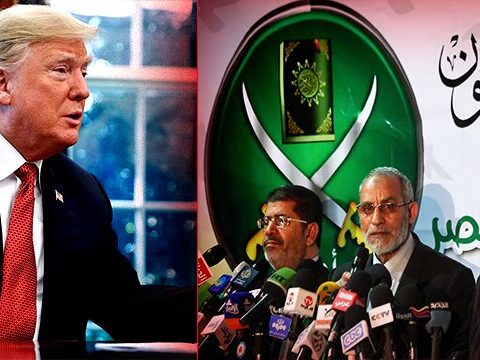First Publication: YARIN Magazine, May 2004
Last May, a letter written by German philosopher Jürgen Habermas and signed by French philosopher Jacques Derrida was published. Initially released in German and then in French, the Turkish version of this letter is featured in May 2004 issue of YARIN magazine. At first glance, the letter appears to be a protest text opposing America’s invasion of Iraq without UN approval. However, the views presented to justify this objection go beyond a mere critique of American hegemony; they offer careful and noteworthy evaluations regarding Europe’s role in international politics, its position in relation to the United States, and ultimately, its historical-cultural identity. Although the letter proceeds from a valid political proposition by rejecting the expansionist policies of American neo-conservatism, it ultimately contains serious contradictions due to its Eurocentric approach to history and politics. For this reason, we have decided to examine these contradictions in the Derrida-Habermas text from the perspective of Türkiye and the Islamic world.
The “European mindset” and “European public sphere” emphasized throughout the joint text by Habermas and Derrida reveal that Europe is undergoing a profound search for identity. There is no doubt that the invasion of Iraq and the American expansionism underlying it have contributed to bringing this identity crisis to the surface. However, it is clear that the issue goes deeper than a mere formula of “European liberalism versus American conservatism.” Questions that Europe is now asking about the identity and self-consciousness have long been debated in the Islamic world as well: Is Europe, as it claimed in the 19th century, a universal model? Do societies that reject the philosophical premises of the European Enlightenment have a chance to produce alternative models? Does Europe represent a religion-based civilization rooted in the Judeo-Christian tradition, or is it a geopolitical entity grounded in a secular worldview? If Europe, as we argue, is based on the Judeo-Christian tradition symbolized by Jerusalem on the one hand, and on the secular worldview symbolized by Athens on the other, and on their re-assembly during the Enlightenment Age, then how consistent is it for the European Union to define itself as a purely political unit, independent of Western religious values and preconceptions?
The emphasis by Habermas and Derrida on the supremacy of international law against American hegemony is certainly commendable. However, the fact that this call is made to secure Europe’s future on the one hand, and the absence of any concrete proposals on how to achieve this goal on the other, significantly weakens their argument. Presenting Europe as an alternative “political community” to the United States in the discussed text reinforces the impression that a Eurocentric view of history and geography is taken as a fundamental premise. Yet, a political analysis that reduces the world’s actors solely to Europe and America cannot be expected to provide an adequate explanatory framework. The need for “multi-actor” forms of analysis is evident if we are to overcome the intellectual and cultural narrowing we face in international relations and globalization. The main flaw of the perspective that still looks at world events from this perspective and says, for example, that Türkiye is a “bridge” between the East and the West, the old and the new, the modern and the traditional, and that makes Türkiye and therefore the Islamic world an inactive element of this dilemma, can be seen as a manifestation of this single-actor reference framework that permeates the Habermas-Derrida text. Interestingly, in his 1938 book Türk İnkılabına Bakışlar, Peyami Safa imagined Türkiye as the bridal chamber of East and West, revealing how deep-rooted this perspective is in our own history. Nearly seventy years ago, Safa wrote: “And if A. Suares expresses a truth with his imagination of Asia as female and Europe as male, then with a similar fantasy, we can present Türkiye as the bridal chamber of both continents, the place where they unite, the most dominant and beautiful point of convergence and union” (p. 116).
Where Does Europe Begin and Where Does It End?
Perhaps the most significant—and necessarily relevant to us—example of how Europe defines itself and according to which values, and whether these values or their outcomes will be universal or not, is the issue of Türkiye’s EU membership. When we approach the topic not from the perspective of whether Türkiye possesses the qualities of a candidate country for the European Union, but rather in terms of Europe’s self-conception, the following question becomes inevitable: Where does Europe begin and end, not only geographically, but also in terms of political and moral values? As Stuart Hall notes in his Questions of Cultural Identity, all identities initially define not what they are, but what they are not, or what is excluded. However, it is not possible for a cultural identity to achieve internal integrity by targeting only what is outside. In this sense, the question of what currently defines or will define the external boundaries of European identity gains importance. The most important problem that the common European identity project has not been able to overcome is where the Islamic world and Türkiye, which is at its centre, that has been perceived as the ‘other’ of Western identity throughout history, will be placed in the European identity. Paradoxically, Europe, in trying to define a distinct identity within Western civilization, is compelled to otherize America as well. The intellectual tension between Europe and America today is rooted in this issue: How did a philosophical rupture emerge between the values that Europe claims to embody and the American political culture that, despite sharing the same roots, is believed to have rendered those values dysfunctional? In short, Europe’s tendency to construct America as an other on one hand, and to ignore or marginalize the Islamic world as either another other or an insignificant actor on the other, indicates that any potential European identity will not be able to overcome its Eurocentric bias. The Derrida-Habermas letter provides significant clues in this regard.
Habermas and Derrida’s insistent emphasis on the Judeo-Christian tradition as the foundation of European civilization sheds light on the problem we have highlighted. It is not at all clear whether an inclusive model of religious and cultural coexistence that transcends religious and cultural exclusion can be developed on this philosophical foundation. Because we know that when it comes to Türkiye’s membership in the EU, that is, becoming a part of the European cultural geography, Europeans bring up the issue of ‘cultural incompatibility’, but what they actually mean by culture here is religion, that is, Islam, implicitly and indirectly. But how can European philosophy, which claims God is dead and religion has been banished from the public sphere, suddenly bring religion to the forefront as a significant analytical element and use it as a decisive factor in a major political decision when a Muslim country is in question? Europeans, who are on average far less religious than Americans, can take on a far more ‘religious’ identity than Americans when religion is treated as a social and cultural phenomenon. This demonstrates just how deeply entrenched Europe’s self-definition through the creation of an ‘other’ is, as mentioned earlier.
In this context, European identity appears determined to derive its strength not from defining itself, but from defining others. Habermas and Derrida fail to offer a new perspective within this framework. For in Europe, especially in Habermas’s home country of Germany, we see that discussions on the common European identity are constantly referring to external lines, and the most important of these lines continues to be Islam as a socio-cultural and geographical unit. This makes it especially noteworthy that Türkiye’s EU membership has become a domestic political issue for Germany’s Christian Democrats. However, articles that base opposition to Türkiye’s membership on cultural grounds can also be found in social democratic publications. The main argument put forward in these articles is that European identity will be diluted and lose its coherence with Türkiye’s membership. Beneath this claim lies the belief that Türkiye, and more precisely, the culture, religion, and historical background it represents, should continue to be excluded. What also complicates the situation for European conservatives is the fact that Türkiye’s pro-EU advocates wish to participate in the European integration project while preserving their own culture. In other words, this demand is made by a Muslim mentality that sees Europe as equal to itself, rather than at the top of the cultural hierarchy. Thus, if Europe accepts Türkiye, it will be acknowledging that the primary element of European Union identity is not religion or culture, but geography. Such an acceptance, however, does not seem to be an easily acceptable outcome, even for intellectuals like Habermas and Derrida, who constantly emphasize the Judeo-Christian tradition and a secular worldview.
A Return to the Enlightenment
Derrida and Habermas’s desire to return to the Enlightenment model in defining Europe is noteworthy and constitutes yet another indication that Europe has not freed itself from its Eurocentric conception. Because defining today’s Europe based on the Enlightenment model, which was formulated in the 17th and 18th centuries and is based on a great ahistorical abstraction and fiction, replacing the transcendent with a one-dimensional understanding of reason and science, is tantamount to claiming that the driving force of history is still limited to Europe. Therefore, when Derrida and Habermas use concepts such as ‘multiculturalism’ or ‘multi-religiosity,’ they are in fact referring to a pluralism that remains exclusive to the Judeo-Christian tradition. However, as Henri Pirenne argued in his work Muhammad and Charlemagne, had Islam not expanded to the western edges of Eurasia, it would not be possible for us today to even speak of a history or geography called “Europe.” This process, which emerged in the 8th and 9th centuries when Islamic armies mobilized all ethnic groups in Europe that lacked a common identity towards the north and coincided with the Christianization of Europe, in a sense also represents the beginning of European history. Looking at Europe’s current demographics and strategic zones of expansion, it becomes clear how far removed the Europe depicted by Habermas and Derrida is from concrete realities. In short, there is a significant and undeniable gap between the definition of Europe that these two philosophers attempt to freeze in the 18th–19th centuries and Europe’s actual emergence in history and its present condition.
For this reason, the idea of “Europe,” no matter how multicultural and globalist it may appear, cannot escape its fundamentally Eurocentric nature. Paradoxically, in order for Europe to truly become a universal, multicultural, and global continent in the full sense of the word, it must abandon the claim of “Europeanness.” Under the burden of history that extends from the Crusades to 19th century colonialism and two world wars, from the Holocaust to Bosnia and Kosovo, it is not possible for Europe to try to define itself by closing itself off from the world once again, or in other words, to create a common European identity by only drawing its outer lines. Despite all this, and perhaps because of it, the Habermas-Derrida duo’s effort to save the European civilization project with a final push cannot go beyond presenting Europe as a universal socio-political model. Although there is an implicit criticism of American hegemonism in this perspective, it is possible to say that the main concern is that Europe should not give up its claim to universality. However, the problem stems from this definition itself, because here, universality does not imply a discourse that requires the acceptance of different cultures on the same level, but rather the claim that European culture is the only rational, modern, civil, humane culture based on freedom and justice. In this picture, it is possible to say that the element that is constantly kept aside and suppressed is the Islamic world. In fact, when Habermas-Derrida briefly take stock of European history, in contrast to 19th-century colonialism and the Holocaust, they make no mention of the ethnic cleansing in Bosnia and Kosovo, which took place within the borders of European civilization and whose victims were Muslims, which once again reveals the Eurocentric tone of the two philosophers’ discourse.
Phases that the European Enlightenment which defined by Habermas as “unfinished Project” and the modernization process that expresses its programmatic form has undergone over the last century and a half demonstrate that a return to the Enlightenment cannot be a way forward. Unlike the modernization/westernization processes of the 19th and early 20th centuries, today non-Western societies are not debating which parts of the European civilization model they should adopt to produce the most effective modernization experience in harmony with their own cultures. The real question that everyone is eagerly waiting for an answer to is whether other models and paradigms are possible outside of the Enlightenment values defined by Europe, and if so, how and through what processes will these models be produced? In parallel with this development, European societies and cultures are perhaps undergoing political, demographic, and economic transformations more rapidly than other societies around the world. The Europe model presented by Habermas, as if history were frozen in time, relies not on the current socio-political realities of the European continent, but on an imagined concept of Europe. For the same reason, it is not surprising that the Habermas-Derrida letter, which makes significant claims about Europe’s future identity, does not contain a single sentence about the Muslim minorities now living within Europe.
In this context, it must be emphasized that the issue of Islam with regard to a common European identity will not be resolved by a negative decision on Türkiye’s membership. While Muslims are making their social presence felt more and more each day in Germany, France and England, which constitute the three pillars of the Europe, with their dynamic demographic indicators, and moreover in the Netherlands and Belgium, they are excluded from the common identity project whose philosophical foundations Habermas and Derrida discuss. Similarly, it must be noted that Europe has failed to become a migration hub for non-Muslim immigrants who do not share a common European historical background, such as those from India or China. For example, Europeans must seriously question why Germany’s green card initiative for IT professionals, which has been in place for several years, has largely failed. In short, Europe’s claim to universality cannot go beyond being an old imperialist discourse based on teaching ways and methods to others, rather than a universality that attracts others.
Finally, we must briefly address what Habermas and Derrida’s defense of the European model against America signifies in terms of Europe-America relations. A basic comparison can be made here between Europe and America. Two reactions have emerged in Western civilization in the post-Enlightenment era. One is the “modernist” reaction represented by Europe, which wants to go back to the sanctities of the Enlightenment, such as reason and science, and on the other hand, there is a reaction that we can call “post-modernist”, based on instrumental rationalism, pragmatism, capitalist expansionism and political hegemonism represented by America. Rumsfeld’s description of the European countries opposing the invasion of Iraq as “old Europe” brought these deep, long-standing tensions to the surface. America’s relative success in economic and military domains compared to Europe has further deepened this issue. Paul Kennedy’s response to the Habermas-Derrida letter in The Guardian newspaper on June 24, 2003, so to speak, calling on Europeans to stop philosophizing and reform the UN, strengthen Europe’s economy and increase its military power, should not be seen as merely a natural reaction of American pragmatism. The deeper issue concerns the global consequences of the competition between these two models.
In this sense, the deep tension between Europe and America is not limited to military and economic threats posed by the U.S. Europe, like other regions of the world, is continuously losing ground in the face of aggressive and expansionist American pop culture and entertainment industries. France’s official ban a few years ago on foreign words—particularly from American English—entering the French language is just one example of this concern. The social model represented by America, which is ‘pluralistic and liberal at home, expansionist and hegemonic abroad’, deeply worries Europe as well as the Middle Eastern countries that are actually exposed to American imperialism. But the real problem, on a more global level – whether it belongs to European, American, African or Asian societies – is what political and moral values humanity will base itself on from now on and what direction it will follow.
Is Secularization Inevitable?
Within the scope of this article, we must briefly touch on the process of secularization emphasized in the Habermas-Derrida text. Habermas and Derrida attribute Europe’s relative success to the secularization of the public sphere and argue that what distinguishes the European model from both America and other experiences is precisely this aspect. It is clear that Habermas is referring to the ‘religious’ identity of America and particularly the Bush administration behind this assessment. Yet, as a leading advocate of secular humanism, Habermas is making a broader claim regarding the structuring of the public sphere. According to this view, voiced by Bernard Lewis and similar Western writers who propose to modernize traditional religion-based societies, especially the Islamic world, by secularizing them, popularized again after the events of September 11, non-Western societies need to experience their own enlightenment and go through a radical secularization process similar to the experience of the Judeo-Christian tradition in order to become a part of the global public sphere. Habermas reiterates this thesis in the final chapter of his work The Future of Human Nature, arguing that Europe’s success in law, human rights, and citizenship stems from basing its public sphere on a secular philosophical foundation. However, this observation, which is valid for some European countries such as Germany, France and the Netherlands, cannot explain countries such as England, Spain and Italy. Because it is not possible to reduce the secular practices in these countries to a single model.
More importantly, the secularism model, which implies the complete removal of religion and religious values from the public sphere (which is only one of the different secularism models), can only survive through policies of oppression. The distinction between institutional religion, that is, the church, and political power does not support the thesis that religion has become completely inactive and dysfunctional, even in Western societies. The modernization theories proposed in the early 20th century assumed that modernity and secularization would go hand-in-hand and that successful social cohesion would only be achieved on secular foundations. However, today, when we look at the examples of Europe and America, as well as the Islamic world, Israel and India, we see that religion does not remain outside the public sphere, but on the contrary continues to play a central role in social events. In other words, the struggle of secular and religious worldviews to gain a place in the public domain is more visible today than ever before. As William Connolly argues in Why I Am Not a Secularist?, the claim that the public sphere should be based solely on secular principles does not have any more or less privilege or priority than religious arguments. Aware of this, Habermas acknowledges that secularization has become a barrier between the West and the Islamic world and other traditional societies, and he admits that the slogan “God is dead” has cost Western societies dearly. In this sense, it is significant that Habermas defines Europe as a ‘post-secular’ society. This also indicates that the alternative perspectives developed by Islamic societies in response to secularization are not only important for the Islamic world but also carry substantial relevance for Western societies that are now experiencing the final stages of the secularization process.
Returning to the Habermas-Derrida text, two notable paradoxes must be mentioned. First of all, it is interesting that Derrida, who is considered the father of the post-modernist analysis method and whose philosophical structure is based on radical anti-realism, wrote a text calling for a return to the classical European Enlightenment. Is it possible to reconcile the reductionist rationalism of classical Enlightenment, rooted in epistemic dominance, with Derrida’s deconstruction of truth into linguistic constructs? In the case of Habermas, we face a different paradox. To our knowledge, among living European philosophers, Habermas is the one who has visited the Islamic world the most. His speeches in Egypt, Iran, and Türkiye in recent years have been widely discussed both in the Islamic world and in Europe. In short, we can say that Habermas has engaged, or at least attempted to engage, with the Islamic world. However, the fact that this interaction has left no discernible mark on his written works is a noteworthy kind of “forgetfulness.” In neither his recent books and articles nor in the letter we are discussing do we find any reference to the Islamic world. We would not be wrong if we said that this ‘absentia’ is not a simple coincidence, but the result of the Eurocentrism we pointed out above and the habit of perceiving/constructing the world from a single center.






